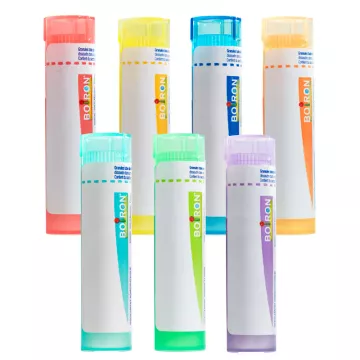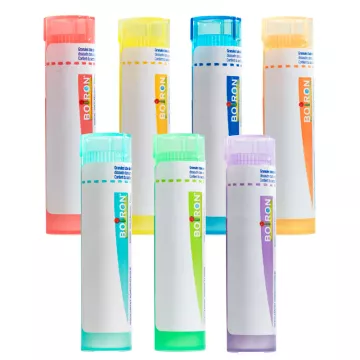

What is withdrawal? Withdrawal refers to the process by which a person stops using an addictive substance, whether medication, alcohol, tobacco or other drugs. This process can lead to physical and psychological symptoms due to the dependence created by the substance.
What are the common symptoms of withdrawal? Withdrawal symptoms vary depending on the substance, but can include headaches, nausea, anxiety, tremors, excessive sweating, irritability and sleep disturbances. For substances such as opioids or alcohol, symptoms may be more severe and require medical attention.
How long does withdrawal last? The duration of withdrawal depends on a number of factors, including the substance consumed, the duration and quantity of consumption, and the person's general health. In general, acute symptoms can last from a few days to a week, but some effects can persist for several months.
How can withdrawal symptoms be managed? To manage withdrawal symptoms, we recommend :
What are the risks of withdrawal without medical assistance? Withdrawal without medical assistance can be dangerous, especially for substances such as benzodiazepines, opioids and alcohol. Risks include seizures, hallucinations, delusions and, in extreme cases, death. It's crucial to consult a healthcare professional before beginning withdrawal.
What treatments are available to help with withdrawal? There are a number of treatments available to help with withdrawal:
Is withdrawal the same for all substances? No, withdrawal varies according to the substance. For example, opioid withdrawal can include muscle aches and cramps, while nicotine withdrawal can cause strong cravings and irritability. Each substance has its own challenges and requires specific approaches.
What are the signs that someone needs withdrawal? Signs that someone needs withdrawal may include:
Can home withdrawal be successful? Home withdrawal is possible for some substances with mild to moderate symptoms, but it is essential to do so under the supervision of a healthcare professional. For substances with potentially severe withdrawal symptoms, a medical environment is strongly recommended.
How can I prevent relapse after successful withdrawal? To prevent relapse after withdrawal, it's important to :
What's the difference between withdrawal and detoxification? Withdrawal refers specifically to the process of stopping the consumption of an addictive substance and managing the associated symptoms. Detoxification, on the other hand, is a more comprehensive process that includes withdrawal but also the elimination of the toxic substance from the body, often with medical assistance, and prepares the person for more complete rehabilitation.
Is withdrawal more difficult for some substances than for others? Yes, the difficulty of withdrawal varies according to the substance. For example, opioid and alcohol withdrawal is often more severe and requires intensive medical supervision, while nicotine withdrawal, while difficult, is generally less physically dangerous. Substances such as benzodiazepines can also cause severe withdrawal symptoms.
Are there any natural techniques to help with withdrawal? There are several natural approaches to help with withdrawal, such as :
How can I tell if someone is going through withdrawal? Signs of withdrawal can include:
What resources are available for people going through withdrawal? There are many resources available to help people in withdrawal, including :